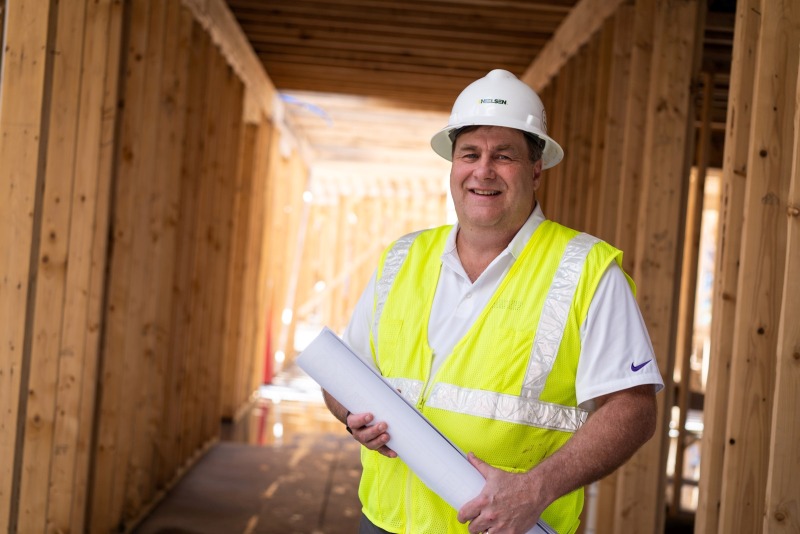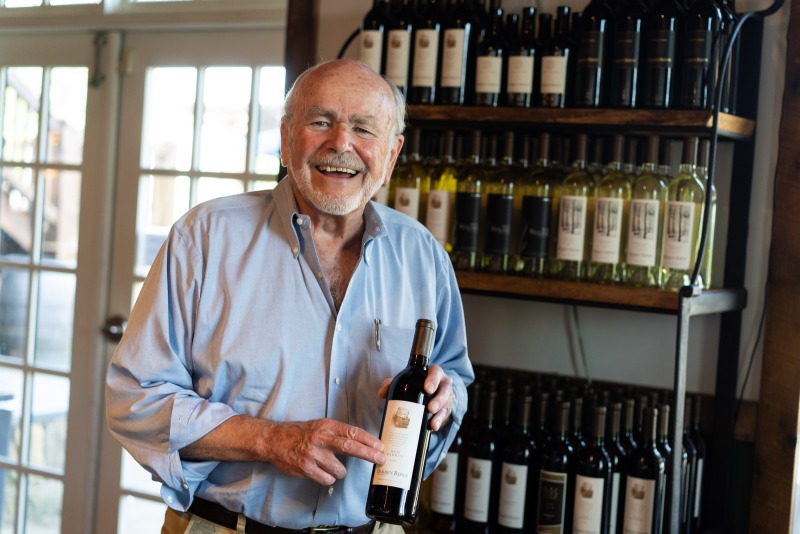There are more ways to pay for your purchases than ever before, and with the holidays approaching, you may be wondering which method of payment is the best for you to use for your seasonal shopping. New options on the horizon that allow you to pay out of time, like buy now, pay later, and old favorites like layaway and credit cards, are a few of the most popular options out there, often utilized to cover purchases that you can’t or don’t want to pay for upfront.
But it can be hard to determine which options are right for you, and what might work for one purchase might not make sense for another. In this post we’ll dive into these common payment choices, discuss their basic features, as well as pros and cons of each one. Making the right choice, especially during the busiest shopping season of the year, can help you save money over the holidays, and even into the new year. Keep reading to learn more.
Buy Now, Pay Later (BNPL)

Buy now, pay later purchase options can be enticing at checkout—instead of paying the full price up front, you only pay a fraction of the price, and then make smaller payments to cover the rest. This can make you feel like you are saving money, or take the bite out of larger, more expensive purchases. But you are still paying the full amount, and the lower payments can lead to irresponsible spending if you’re not careful. However, these plans can be useful in certain situations, for instance for large purchases you need to make, like a new appliance, that you might not have the funds for immediately. Let’s take a closer look at buy now, pay later plans.
How They Work
With buy now, pay later you set up an installment plan for paying off your purchase. You will likely be required to pay some money upfront, but pay off the balance over time in a series of smaller payments. Some BNPL systems have a fixed schedule of four payments, while others will allow you to choose how many installments you make. This type of payment system has grown in popularity since the pandemic, and now most major retailers, including Amazon, offer these plans as a payment option. Popular and reputable platforms include Afterpay, Affirm, and Klarna.
Pros
There are many reasons and benefits for choosing BNPL, which is why this type of financing plan is growing in popularity. Some pros include:
- No Interest: Many retailers and programs don’t charge any interest if you make all your payments on time.
- No Credit: You don’t need to have established credit to qualify and no hard credit checks will be run when you apply.
- Availability: Most major retailers offer BNPL as an option during the checkout process, including many online retailers.
- Affordability: With BNPL, you can make larger purchases more affordable by breaking the payment into more digestible chunks.
- Credit without a credit card: BNPL can help fit purchases into your budget without requiring use of credit cards, which usually have much higher interest rates.
Cons
Although BNPL plans have a lot of perks, they’re not right in all situations. Here are some downsides:
- Possible Interest or Fees: Some retailers do charge interest, a fee, or both—especially if you miss a payment.
- Might not build your credit: Even if you make all your payments on time, some retailers don’t report your activity to the credit reporting agencies, which means your credit won’t be improved or established with BNPL.
- Could harm your credit: While some payment plans are automatic, not all are. If you miss a payment or a payment fails to go through, it could harm your credit.
- Could lead to overspending: Because you don’t have to pay a balance upfront, it can be easy to overspend. Even if the payments are smaller and distributed over time, if you rack up a lot of these plans, you could end up in debt.
- Expensive late fees: In addition to potentially harming your credit, if you miss a payment, you could be hit with expensive late fees.
Layaway

Layaway is an old favorite—it’s been around since the Great Depression, and is a useful way to put money aside for an item, little by little, when you know you want it but you can’t afford the whole cost up front. In this way, layaway is essentially the inverse of By Now, Pay Later. And if you don’t need an item right away, it’s a great way to work towards larger purchases while creating a habit of savings in the process.
How It Works
Today, layaway is available in stores, as well as at many online retailers. There are different options for layaway, from making payments in person at stores, to setting up automatic payment plans. Though many brick-and-mortar stores have discontinued their layaway payment options, there are still a few major retailers who offer it, including Burlington, K-Mart, and Sears. With in-store layaway, you select the item that you would like to purchase, taking it to customer service to set up a layaway plan. You may need to put down a deposit and pay a fee to get started. With major retailers, you can often make payments online or in-store, but need to make them on a regular schedule, and by a certain date. Online layaway is similar, except that the item will ship to you after you have made all your payments.
Pros
While layaway has decreased in popularity over the years, it serves a valuable role in certain situations. These are some of the best aspects of using layaway for your purchases:
Smaller payments: Just like BNPL, the smaller payments can make it easier to fit the cost into your weekly or monthly budget.
No interest: Layaway isn’t a loan, so you won’t be charged interest in the process.
Easy to qualify for: There is no credit or income requirement, you simply need to put a percentage of the money down, and in some cases pay a small fee.
Holds the item for you: If you are worried an item may sell out, putting it on layaway can hold it till you have the funds to cover it. However, not every item in a store may be available for layaway.
Avoids overspending: Layaway helps you make larger purchases, but in a way that ensures that you can actually afford them.
Cons
On the other hand, layaway isn’t for everyone. It’s usually not free, and its requirements can feel onerous. Here are some of the specific cons of layaway:
Fees: Many stores charge fees for starting a layaway plan, as well as fees for not completing payments by a certain date.
Strict repayment terms: Many layaway plans have strict repayment terms that require you to make regular payments. If you don’t have an automatic payment plan and are making in-store payments, this can be a burden.
Long wait: You won’t be able to complete the purchase and take home the item that day, instead you will need to wait until it is completely paid for. If you need something right away, layaway is probably not the best option for you.
Annual fees: Many cards, especially those that offer the best rewards, charge an annual fee.
Credit Cards

Credit cards are possibly the most well-known of these payment options, accounting for nearly a third of all payments made in the U.S. Major credit card issuers, like American Express, Visa, Mastercard account for about 96% of all credit card transactions.
How They Work
Credit cards are a kind of revolving credit account that allows you to borrow funds to pay for purchases, paying off the balance over time. Credit cards have limits, and this will vary from account to account. This is the maximum balance the account can hold at any time. There isn’t a time frame that it needs to be paid off, but there does need to be a payment made monthly, determined by the credit card company. And any balance you have after one month is subject to interest—often at fairly high rates. In fact, the average interest rate for 2022 is 16.65%, which can start building on top of those balances quickly.
Pros
Credit cards have a lot of pluses for shoppers, which is why they are one of the most popular methods of payment. Some of these benefits include:
- Convenience: Never bother with carrying cash and never worry if there is enough money in your account to cover a purchase (though each card does have a limit).
- No overdraft fees: Instead of fees for overdraft, your card will simply be declined, avoiding extra charges.
- Great for building credit history: when you make on time, monthly payments, and keep your balances low, credit cards are one of the easiest ways you can establish good credit.
- More secure than cash: Users are generally not responsible for fraudulent transactions. And unlike cash, if your card is lost or stolen, you can simply report it to the company to cancel it.
- Great rewards: Many cards come with some form of reward from airline miles and travel points to cash back.
Cons
Although credit cards are convenient and can be a great way to build your credit, their ease of use can contribute to many of their cons, including:
- High interest rates: Rates can be significantly higher than that on secured debt, like home and car loans, and all that interest can add up surprisingly quickly.
- Easy to go into debt: No requirements to pay off balances each month, in conjunction with high interest rates can quickly lead to debt, as balances grow each day. If you do find yourself in debt, check out our post, 9 Tips for Paying Off Your Credit Card Debt.
- Can damage your credit: If your balances are too high, you have too many cards, or you fail to make your minimum payments, your credit score will be negatively impacted, making it harder to qualify for other credit like home loans. However, if you use a credit card responsibly and make each payment on time, it can be a boon to your credit.
Which is best for Shenandoah residents?
There is no one financial solution that works for every individual, in every situation. However, regardless of how you choose to pay for your purchases, F&M Bank can help. From rewards checking accounts with debit cards, to low-interest rewards credit cards with no annual fees and great incentives, we have options to fit everyone’s needs. Stop by one of our Virginia branch locations today to apply for one of our great credit card options, and see what F&M Bank can do for you!















